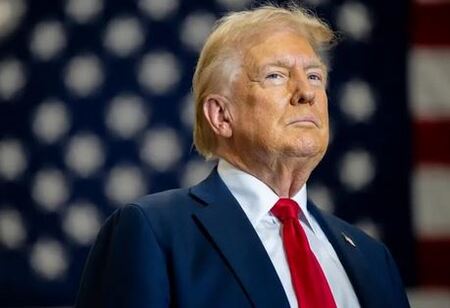
Trump Admin Weighs Sanctions on EU Officials Over Digital Services Act


The Trump administration is contemplating the introduction of sanctions against officials of the European Union or its member states who are involved in enforcing the EU's Digital Services Act (DSA), as per reports.
This potential action arises amidst persistent US grievances that the legislation stifles American voices and imposes an unjust burden on U.S. technology companies.
Should it be implemented, these sanctions would signify a significant escalation in the administration’s efforts to counter what it perceives as Europe’s goal to suppress conservative opinions.
According to reports, senior officials within the State Department have yet to reach a definitive conclusion but are investigating visa restrictions as a potential punitive response. US officials convened for internal discussions on the topic last week, although it remains uncertain which EU or national officials would be singled out.
Also Read: This 28-Year Old Leader Was Hired by Mark Zuckerberg to Lead Meta's AI Efforts
The Digital Services Act, a key piece of EU legislation, mandates that major online platforms enhance their efforts to combat illegal content, including hate speech and child sexual abuse material. EU representatives claim that the law aims to create a safer digital environment while upholding freedom of expression.
Critics in the US contend, however, that the DSA imposes excessive constraints on free speech and unfairly affects American platforms.
In an internal memo issued in early August, Secretary of State Marco Rubio directed US diplomats throughout Europe to voice dissent against the law and urge EU governments and digital regulators to consider its modification or repeal.
EU representatives have dismissed Washington’s accusations.
"A fundamental right in the EU is freedom of expression, which is central to the DSA," the European Commission stated, branding the US allegations of censorship as "totally unfounded."
Officials in the Trump administration have increasingly positioned their foreign policy around the defense of conservative speech. In May, Rubio warned of visa restrictions for foreign officials who attempt to "censor" Americans online and indicated that such actions could extend to regulators of US tech companies operating abroad.
Vice President JD Vance, along with other high-ranking officials, has often criticized European nations for purportedly suppressing rightist viewpoints. In February, Vance surprised allies at a significant security conference by accusing EU countries of silencing opposition groups like Germany’s far-right AfD and "withdrawing" from principles of free speech.
Also Read: Spacetech Startups Propelling Modern Space Innovation
US technology firms, including Meta Platforms, which owns Facebook and Instagram, have resonated with the administration’s criticisms. They assert that the DSA constitutes censorship of their platforms and imposes costly compliance requirements.
EU leaders focusing on antitrust and digital policies addressed these worries during discussions with US lawmakers in March, clarifying that the regulation aims to ensure open digital markets and is not targeted specifically at American companies.

